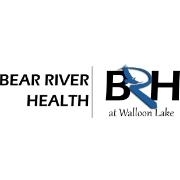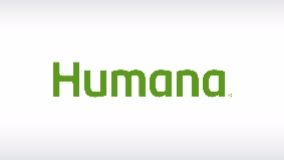About Job
Summary:
Bear River Health (BRH) is a Private for Profit, Limited Liability Corporation (LLC) that serves people with primary substance use disorders and mental health issues in medically supervised detoxification, residential and outpatient treatment setting.
As we strive for excellence as a team, we ask you to strive for excellence in your job. In return, you can expect a pleasant work environment, fair compensation and opportunities for personal growth and job satisfaction.
Vision:
To become the industry leader in Substance Use Disorder Treatment and life skills development by incorporating a holistic person-centered, evidence-based treatment model using trauma informed care.
Mission:
To save lives and foster growth.
Values:
● We Care! Our empathy motivates us to act with compassion. We are called to recovery, passionate about our roles and invested in our client’s recovery.
● We’re Real! Our actions being congruent, authentic and genuine.
● We Grow! We are dynamic with a focus on improvement and innovation.
● We Are Professional! We maintain professional boundaries between our staff, clients and community.
Accountability:
● Patient Care to Completion
● Maintain Professional Boundaries
● Employ Evidence Based Therapy
● Document Timely & Accurate Work Product
● Be Independent and Reliable
● Proactively Communicate
Qualification Requirements:
The person must be licensed or credentialed or on a Development Plan.
Licensed: LMSW or LPC is required for licensure. An exception will be made for a limited licensed person that maintain a supervision plan and is working toward licensure. All supervision and training requirements together with reporting records must be maintained with HR.
Credentialed: MCBAP as a CAADC or CADC. If a person is on a DP or development plan then they are credentialed as long as they maintain their supervision and reporting requirements must be maintained with HR.
BRH does not have to provide supervision... We offer this. Training and supervision and reporting are required to be done on your own time or if done during work hours and it requires make up time then this is not to be billed as overtime.
Training:
CEU will be offered and with approval every clinical counselor can either use a SCHEDULED professional development day (you have 3) in which we pay you for training or attend a CEU conference representing BRH where we pay you for attending without using a day. Please note that you are required to take ASAM I and II as part of your personal development days until you have completed them.
ALL CEUs will be tracked by HR.
In addition, there is on-the- job development which involves insight and assistance by the clinical administrator and senior therapists. Initial training is designed for competency when you start your new role. There is additional training designed to improve proficiency that will be provided by a clinical development team. This includes documentation requirements and class program materials.
Work Hours:
Will be determined and such with the Residential Program Director.
Overtime is not permitted to catch up on work and must always have approval of the program director or executive director.
Time off requests including for clinical development must be approved so that the work flow can be managed. If you are sick then call into the clinical administrator so that coverage can be maintained. Too many absences even without pay will result in discipline.
Documentation Standards:
Every person is required to meet the documentation standards. The clinical development team will be auditing the notes for quality and providing training to ensure competency. In the event that your documentation fails to meet standards you will be required to address this professionally. Medicaid will disqualify payment if documentation fails to meet the requirements.
Deadlines are clear in that documentation is required to be completed on the day that the services were performed and not delayed to take home. Documentation is in real time. Ability to perform is a pre-requisite to this position. The work load is appropriate and most are able to comply. If a situation occurs that diverts you from completing it should be a rare exception and then you must ask for help.
ALL client interactions are to be documented as progress note. If you are falling behind ASK FOR HELP before it becomes a problem.
Focus On Your Responsibility…Your Clients:
When a person (maybe a former client you were responsible for previously) ask you to get involved in their issues then you are to redirect them and inform their treatment team. DO not become involved unless it is an emergency beyond what it takes to get them help within their own team. Some clients will consume clinical resources and have multiple people working on the same issue.
Remember that when someone else gets involved in your clients they often lack all the information and are distracted from handling their own clients.
Interactions With The Senior Therapist: Behavior Management
The role of this person is to provide behavior interventions to ensure consistent client behavior interventions and to provide evening and weekend responses. This person is to discuss with the treatment team, the clinical administrator and the program director a policy and process for consistent interventions to ensure 100% rule compliance. In the event the person makes a decision to discharge a client in accordance with this process, then you must accept this decision. Furthermore, this person is to deal with issues that would otherwise distract you from servicing the other clients
Professional Boundaries:
As a professional it is important that you maintain professional boundaries with clients and former clients of BRH. This means they do not receive a personal phone number or be ‘friended’ on social media. If a person wishes to contact you for work purposes, they do so thru BRH mainline. Please note that dating a client is just cause for loss of credential, license and employment. Please note that hugging of clients is strictly forbidden by professional staff.
Respect The Other Clinical Members:
This team is drama free. Do not discuss other clinical team members with each other. If you have a concern report it to HR, the program director or the executive director.
At this time, there is a clinical administrator who is to ensure the work is completed in a timely manner and not to be involved in employee discipline. There is a clinical supervisor that works on the interactive education, the client workbook and the client schedule. There is a senior therapist focused on behavior and finally there are a variety of clinical supervisors that provide oversight to development plans and limited licensed staff. Finally, there is a clinical development team member that will work with you to improve your documentation and time management. BE RESPECTFUL at all times.
Job Duties:
The clinical counselor has to focus on seven items they are responsible for related to the care of a group of individuals (not to exceed 12). The day must always start with examining the clinical workflow to help on understanding your time management. In short here are the requirements:
1. Introduction to the client. Meet the client on their first day of treatment. This is an important part of orientation. Ensure that the client knows that you are the senior member on the treatment team and they are to come to you if they have any needs or concerns.
2. Assessment. This must be completed by the end of their second day of treatment. This must be on the proper tool and entered into the chart with clinical impressions and a problem list that identifies all issues from the assessment. Pay attention to clients who meet the requirements of WSS or co-occurring.
3. Treatment Plan. This must be completed by Day Three and should identify what will be addressed, referred or deferred. The treatment plan should be individualized and a product of the client participation in preparing especially in prioritizing the client’s goals. The ASAM criteria must be used to justify the level of care and length of stay. Requests to change the LOC or LOS as well as extensions are to be processed with the client request, the clinical counselor support and review and approval of the clinical administrator who will process the request with the payer and provide advocacy in writing if needed.
4. Behavior Issues. Many small issues should be resolved directly with intervention and tools. In the event a larger issue occurs then it is time to bring it to the Senior Therapist that will receive your input and then handle the follow-up so that you can manage your other client requirements. Documentation of interventions are required as a progress note.
5. Discharge Plan. The PCM has primary responsibility for the discharge plan but this is something that must meet with the treatment team unanimous understanding and approval. This process starts on day one and is reviewed with evolution over time as the client awareness increases. A crisis discharge plan is to be reviewed in the event a client is AD or leaves ACA.
6. Individual Sessions. This is the one-on-one time spent with clients after treatment basics are performed that do not include behavior interactions. This is when you review and address and update the treatment plan. Ensure that every client is seen every 14 days for a session.
7. This is the daily group therapy. This is one interactive workshop that is scheduled in the afternoon for your treatment group in which you are required to probe deeply into the client’s reactions to the scheduled material and address in group the issues that arise.
8. review Asam assessments and diagnosis confirmation of all new admissions daily for clinical oversight of documentation regarding level of care and mental health diagnosis.
Minimum Qualifications:
· Minimum of 2 years’ experience required
· Possess a valid license to practice as a Therapist issued by Michigan LARA or a Limited License Master’s Degree and Licensed PC or be on a MCBAP Development Plan
· Adhere to all ethics pertaining to profession and maintain all CEU credits for mental health licensure\Experience in substance abuse and dual diagnosis counseling within a residential treatment facility preferred
· Experience in substance abuse and dual diagnosis counseling within a residential treatment facility preferred
· Experience with providing prevention and early ontervention behavioral health services
· Must have treatment experience with strong professional references attesting to high degree of clinical sophistication
· Trained to independently diagnose and treat mental health and substance abuse problems
· Current certification in First AID/CPR
· Ability to apply for and obtain CAADC
· Must understand ASAM criteria, medical necessity
· Must be on a Development Plan
· Must be MCBAP certified
This job requires a professional who is able to communicate well in person and in writing.
This person will need to understand computers proficiently although we will be trained to utilize the Electronic Health Record (Bear Charts) and to be able to enter data in real time.
This person must be able to manage time and prioritize.
Job Type: Full-time
Pay: $22.65 - $26.05 per hour
Benefits:
- 401(k)
- Dental insurance
- Employee assistance program
- Health insurance
- Health savings account
- Life insurance
- Paid time off
- Referral program
- Vision insurance
Work Location: In person





